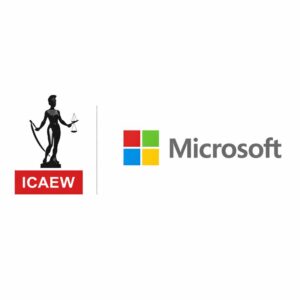Bookkeeping profession contracts 5% amid AI growth

The bookkeeping profession faces significant disruption as artificial intelligence automates core functions that have sustained the industry for decades. The US Bureau of Labor Statistics projects a 5% decline in employment of bookkeeping clerks between 2023 and 2033.
The pressure stems from technological advances that have made routine financial tasks increasingly automated.
How bookkeeping jobs are changing
Cloud-based accounting systems such as QuickBooks and Xero have democratised financial management. They allow small business owners to perform tasks that previously required professional bookkeepers.
Despite the overall decline, approximately 174,900 bookkeeping positions are expected to open annually over the next decade. This is driven primarily by retirements and career transitions. This suggests opportunities remain for practitioners willing to adapt their skill sets.
Future of bookkeeping careers
Successful bookkeepers are repositioning themselves as business advisers rather than data processors. The bookkeeping profession now emphasises interpreting financial information, identifying trends and providing strategic guidance to clients navigating complex business decisions.
The shift reflects broader changes in professional services, where automation has pushed practitioners toward more consultative roles.
Human skills retain value
Industry experts argue that certain aspects of bookkeeping require human judgment that AI cannot replicate. Client relationships, ethical decision-making and complex problem-solving represent areas where human practitioners maintain competitive advantages.
Small businesses increasingly seek guidance on cash flow management, financial planning and regulatory compliance rather than simple transaction recording. This creates opportunities for bookkeepers who can interpret data and provide actionable business insights.
The regulatory environment also favours human expertise. Compliance requirements have become more complex, especially around environmental reporting. International tax obligations add to this complexity. Businesses need professional guidance to navigate these evolving standards.
Bookkeeping skills for the AI era
The transformation requires significant upskilling. Modern bookkeepers must develop competencies in data analytics, business advisory services and technology integration. Many pursue additional qualifications in financial planning, business analysis and sector-specific expertise.
Specialisation offers defensive strategies against automation. Complex areas such as multi-entity accounting, international transactions and industry-specific requirements remain challenging for automated systems. Bookkeepers who develop expertise in niche sectors can create competitive advantages.
Professional development in client relationship management has become crucial. The ability to communicate financial concepts clearly and build trust distinguishes human practitioners from automated alternatives.
Broader accounting sector grows
Interestingly, while bookkeeping roles decline, employment of accountants is projected to grow 6% through 2033. Auditor positions will also see this growth, faster than the average for all occupations. This divergence suggests that challenges in the bookkeeping profession stem from the migration of value toward more sophisticated service offerings. They do not arise from a declining demand for financial services.
The accounting industry broadly is experiencing growth driven by increasing regulatory complexity, business expansion and demand for strategic financial guidance. However, this growth concentrates in roles requiring advanced analytical skills and professional judgment.
Adaptation strategies
Practitioners adapting successfully to technological change share common strategies. They embrace AI tools to eliminate routine tasks while focusing on higher-value advisory work. They develop specialised expertise in complex areas difficult to automate. They strengthen client relationships and communication skills.
The most resilient practices combine technological efficiency with human insight. They use automation to handle data processing while dedicating human resources to analysis, strategy and client service.
The bookkeeping profession stands at a crossroads. Traditional bookkeeping roles focused on data entry and routine processing face continued pressure from technological advancement. Bookkeepers can find sustainable career paths by adapting. They should develop advisory skills and embrace technology. Focusing on relationship management also helps them succeed in an evolving marketplace.
Success requires honest assessment of changing industry dynamics and commitment to continuous professional development. The bookkeeping profession will continue evolving. Those who thrive will be bookkeepers who view technological change as an opportunity. They will eliminate mundane tasks. They will focus on delivering strategic value to their clients.





